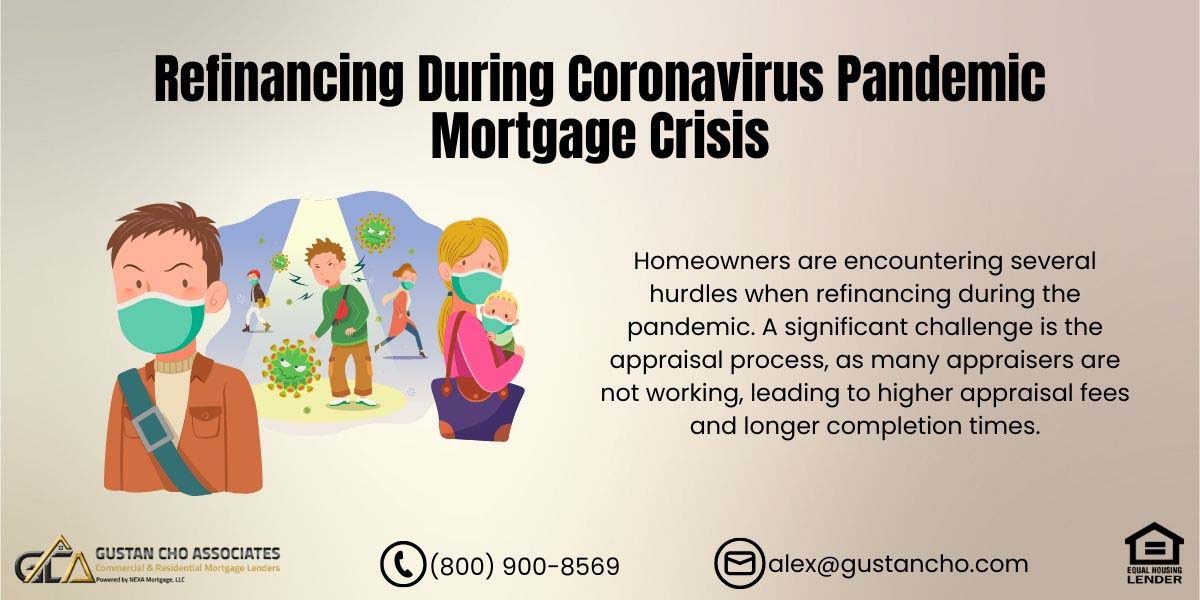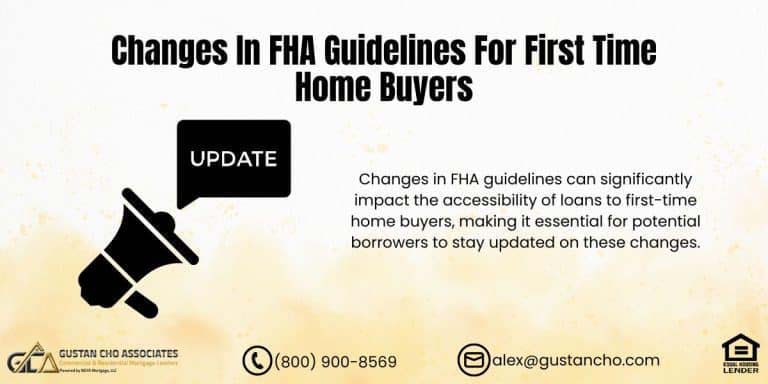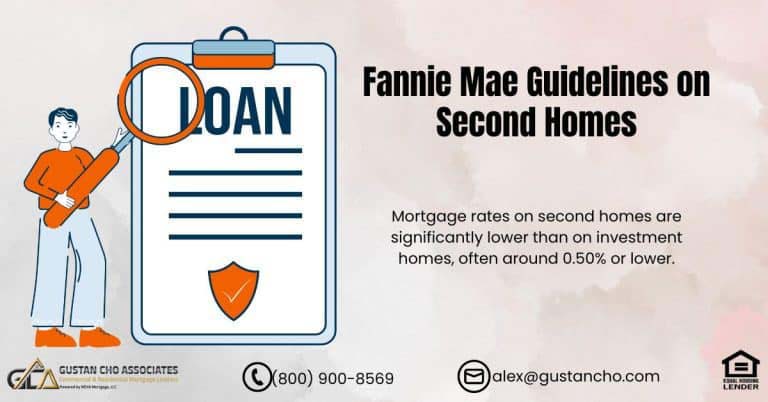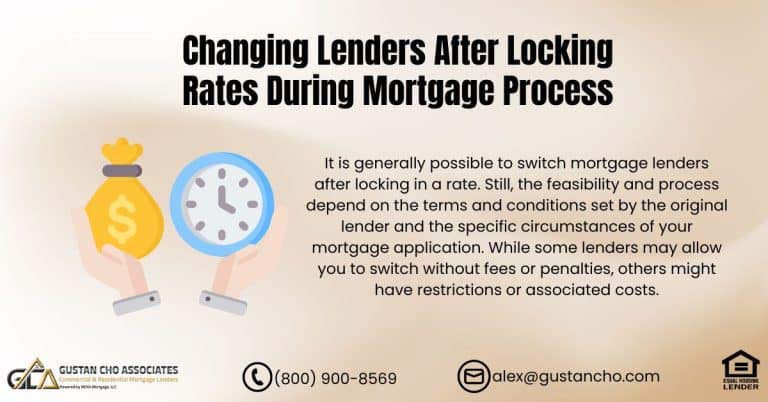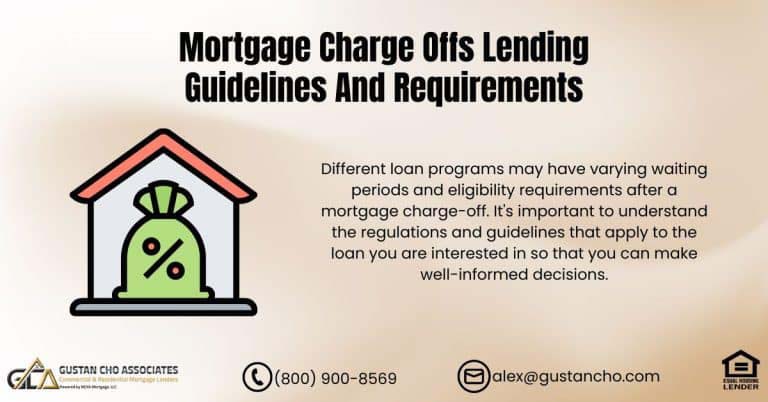BREAKING NEWS: Refinancing During Coronavirus Pandemic Mortgage Crisis
Hurdles with Refinancing During Coronavirus Pandemic Mortgage Crisis: With all the global news surrounding the COVID-19 coronavirus outbreak, there is a strong surge of refinance mortgage transactions. In this blog, we will give a quick update on the coronavirus affecting mortgages and how to complete a refinance transaction during these difficult times. In this breaking news article, we will discuss and cover Refinancing During Coronavirus Pandemic Mortgage Crisis.
Update For Homeowners Refinancing During Coronavirus Pandemic Mortgage Crisis
There are many hurdles and challenges when Refinancing During Coronavirus Pandemic Mortgage Crisis: A record of 16 million people has filed for unemployment in the past few weeks! PPE supplies seem to be stocked at a level to keep our healthcare professionals safe during these times of chaos. The U.S. accounts for ⅓ of the world’s death toll. Many Christians are locked down for Good Friday and Easter weekend, will have to celebrate remotely. Refinancing your mortgage loan during the COVID 19 coronavirus outbreak.
Refinancing During a Mortgage Crisis? Let Us Help You Secure the Best Rate!
Contact us today to explore your refinancing options and lock in a better rate for your mortgage.
Surge In Refinancing By Homeowners
With interest rates surging and dropping at a pace we have not seen in many years, there has been a mini refinance boom in the mortgage industry This is good and bad news. This is good because thousands of Americans are saving money on their mortgage payments and some are even paying off debt with a cash-out refinance. The downside to the refinance boom is mortgage companies are at capacity for origination. When mortgage companies are swamped, investors charge higher interest rates to steady the number of mortgage loans in their pipeline.
Discount Points Charged By Lenders When Refinancing During Coronavirus Pandemic
Many of our investors are charging DISCOUNT POINTS for most borrowers, even those with strong credit scores:
- This market is unpredictable during this COVID-19 outbreak
- With everything going on, is it possible to close a refinance?
- Closing a refinance is still possible during the COVID-19 coronavirus outbreak.
- There may be a few small hurdles to jump over during the process.
- The main hurdle will be the appraisal process.
- Depending on your refinance transaction, more than likely, you will need a full appraisal to close the transaction.
- In these uncertain times, many appraisers are not working.
This may cause your appraisal fees to be higher than normal and the time for an appraisal to be completed to be longer than normal.
Turn times When Refinancing During Coronavirus Pandemic Mortgage Crisis
Underwriting turn times. Due to increased volume in the mortgage market, and mortgage company employees working remotely, this is creating longer than normal turn times for the mortgage process. In times like this, we recommend locking your interest rate for at least 45 days for a refinance transaction. Or you may want to float your interest rate lock for the first few weeks of the mortgage process, Before the COVID-19 coronavirus outbreak, refinances were taking between 25 and 30 days, Due to the fact is above, a refinance transaction is now taking closer to 40 to 45 days, Patience is required during these times, Underwriters are swamped with loans and are taking longer than normal for approvals.
Refinance Closing Mortgage Process During Coronavirus Outbreak
Refinance closings procedures during COVID-19 coronavirus, The real estate sector is still considered essential business making many title companies are now using remote and drive up closing procedures, With a refinance, in most states, you are able to have a mobile notary meet you to sign closing documents, During the coronavirus outbreak, this is still possible and in practice, Some title companies will require you to come to their location and sign the documents in your vehicle. This is called a drive-up signing, a new practice We hope this is temporary as many clients are excited when they close on a mortgage loan. The days of handshakes and hugs will return soon enough.
Are Most US Mortgages Pandemic Mortgages?
During the pandemic, many U.S. mortgages either originated or were refinanced, particularly due to historically low interest rates. Approximately one-third of all outstanding mortgage balances were refinanced from the second quarter of 2020 through the end of 2021.
This period saw a surge in purchase and refinance mortgage originations, driven by low mortgage rates, increased demand for housing, and strong household balance sheets. Homeowners who refinanced benefited from lowered monthly payments and improved cash flow. In contrast, those who took out cash from their equity had more funds for consumption.
The pandemic also saw a substantial number of new mortgage originations. In the seven months between spring 2020 and the end of 2021, around 14 million homeowners refinanced their home loans, representing a significant portion of all outstanding mortgages. This wave of refinancing was one of the smartest financial moves for many homeowners, allowing them to capitalize on the low interest rates to secure lower financing costs for decades. These actions helped to stabilize and provide liquidity in the housing market during a period of economic uncertainty.
Getting Started With The Refinance Mortgage Process
We continue to monitor the COVID-19 coronavirus outbreak. We all hope to be back to work sooner than later to increase our customer service abilities and turn times. With a record of Americans off work, not everybody is eligible to enter into a mortgage. For those individuals who have been laid off, they will need to return to work before qualifying for a mortgage. We all monitor the news closely and hope to have our economy opened as fast as possible.
Worried About Your Mortgage Payments During a Crisis? Refinancing Can Help!
Reach out today to discuss your options for refinancing during this challenging time.
How Does a Mortgage Repayment Plan Affect Mortgage?
A mortgage repayment plan significantly impacts your credit score, primarily through your payment history, which accounts for about 35% of your score. Consistently paying your mortgage on time helps you build a positive payment record and improve your credit score. Conversely, missing or making late payments can significantly damage your credit, potentially lowering your score.
Additionally, having a mortgage contributes positively to your credit mix—one of the factors in your credit score—by adding an installment loan to your credit profile, which can improve your overall credit health.
As you pay down your mortgage, the decreasing balance can also positively impact your credit score. However, a high mortgage balance relative to the loan amount might affect your score. Applying for a mortgage will lead to a hard inquiry appearing on your credit report. This may lead to a temporary reduction in your credit score, but this effect diminishes over time. Moreover, a long-term mortgage, paid on time, enhances the length of your credit history, further benefiting your credit score. On the flip side, having a high mortgage debt-to-income ratio can hinder your chances of obtaining new credit. Nevertheless, it doesn’t have a direct impact on your credit score.
Documents Required To Start The Mortgage Process
In order to start the refinance process, you will want to gather the following information:
- Driver’s License
- Last 30 Days of Pay Stubs
- Last Two Years Tax Returns – not always required
- Last Two Years W2 or 1099s
- Mortgage Statement
- Home Owners Insurance Policy
Once you have this information gathered, please call Mike Gracz on (800) 900-8569. You will then have a one-on-one refinance consultation. It is important that we understand the goals of the borrower to best serve you in the short term and long run. There are times when a refinance transaction does not make financial sense for you. We want to make sure this loan will benefit you. Mike will pair you with a licensed loan officer in your state to get the process started!
Get Started With The Pre-Approval Process at Gustan Cho Associates
Remember, 75% of our clients have been turned down by other lenders due to overlays. During the COVID-19 coronavirus outbreak, most lenders have raised their minimum credit score requirements. As of today, Gustan Cho Associates have not raised their minimum credit score requirements. We are here to assist you with your mortgage needs seven days a week. For more information on refinancing your current mortgage loan, please call Mike Gracz at (800) 900-8569. You may also email gcho@gustancho.com. We will continue to bring you up to speed on any news we receive. Stay tuned to our YouTube CHANNEL for more Mortgage announcements.
FAQs: Refinancing During Coronavirus Pandemic Mortgage Crisis
- 1. What challenges are homeowners facing when refinancing during the coronavirus pandemic? Homeowners are encountering several hurdles when refinancing during the pandemic. A significant challenge is the appraisal process, as many appraisers are not working, leading to higher appraisal fees and longer completion times. Additionally, the surge in refinance applications has overwhelmed mortgage companies, resulting in longer underwriting turn times. It is advisable to lock in your interest rate for at least 45 days to account for these delays.
- 2. How has the surge in refinancing affected the mortgage industry? The refinance boom has both positive and negative effects. On the positive side, many homeowners save money on their mortgage payments and pay off debt through cash-out refinances. However, the increased volume has led to mortgage companies reaching capacity, causing investors to charge higher interest rates to manage their pipelines. This market unpredictability has also resulted in lenders charging discount points, even for borrowers with strong credit scores.
- 3. Can a refinance be closed during the COVID-19 pandemic? Yes, closing a refinance during the pandemic is still possible. Many title companies have adapted by using remote and drive-up closing procedures. In most states, mobile notaries can meet you to sign closing documents, and some title companies offer drive-up signings where documents are signed in your vehicle.
- 4. What impact does a mortgage repayment plan have on credit scores? A mortgage repayment plan can significantly impact your credit score. Consistently making on-time mortgage payments builds a positive payment history, which is crucial for a good credit score. A mortgage also adds to your credit mix, improving your overall credit health. Missed or delayed payments, on the other hand, can damage your credit rating. Additionally, paying down your mortgage reduces the balance, positively affecting your score.
- 5. How long does it take to refinance a mortgage during the coronavirus pandemic? Before the pandemic, refinances typically took 25 to 30 days. Because of the higher number of applications and the shift to remote work, the procedure now requires 40 to 45 days. Patience is required as underwriters deal with more loans, and approvals take longer.
- 6. What documents are required to start the mortgage refinance process? To start the refinance process, the necessary documents include a Driver’s License, the last 30 days of pay stubs, tax returns from the last two years (though not always required), W2 or 1099s from the last two years, a mortgage statement, and a homeowners insurance policy.
- 7. How did the pandemic affect mortgage originations and refinances? During the pandemic, a significant number of U.S. mortgages were either originated or refinanced due to historically low interest rates. Approximately one-third of all outstanding mortgage balances were refinanced from the second quarter of 2020 through the end of 2021. This surge helped homeowners lower their monthly payments and improve cash flow, stabilizing the housing market during a period of economic uncertainty.
- 8. Can individuals who have been laid off qualify for a mortgage? Individuals who have been laid off will need to return to work before qualifying for a mortgage. The economic impact of the pandemic has made it essential for borrowers to have stable employment to be eligible for refinancing.
If you have any questions about Refinancing or you need to qualify for loans with a lender with no overlays, please contact us at 800-900-8569. Text us for a faster response. Or email us at alex@gustancho.com. The team at Gustan Cho Associates is available 7 days a week, on evenings, weekends, and holidays.
This blog about Refinancing During Coronavirus Pandemic Mortgage Crisis was updated on June 5th, 2024.
Refinancing Your Mortgage in a Crisis? We Can Help You Navigate the Process!
Reach out today to learn how refinancing can help reduce your payments and make your mortgage more manageable.


